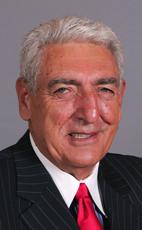Mr. Speaker, I compliment my colleague on the sincerity of his speech, but there are some difficulties I am having trouble understanding. I have several questions.
I do not think there is any difference between that side of the House and our side of the House with respect to what should be done as we deal with the refugee crisis and the humanitarian considerations in the terrible conflict going on in the Balkans.
My colleague made several statements with respect to the military aspects. One dealt with the imperfections of NATO and that the Government of Canada could do something else other than what is being done. The member made some comments about the United Nations.
What does the member think should happen when 19 countries in NATO are all united, and have been united in the last three weeks and three or four days with respect to the military action taken in trying to bring this terrible person under some kind of control? What does the member think the United Nations should be doing? We are all agreed, those of us in the free world and NATO, and the secretary general recently stated that the United Nations is doing all it can to find diplomatic efforts to solve this problem.
The member commented with respect to what our peacekeeping forces did in the past, starting with the Pearson peacekeeping movement that Canada adopted and in which Canada has been a world leader.
To stand in this House and criticize our peacekeeping movement which has been the honour of Canada for the past 45 years, to criticize what we are doing as one of the 19 countries of NATO and to criticize what we are doing as a very important member of the United Nations does not stand in good stead for the unity this House should be showing in supporting our efforts on the military side and what we are attempting to do to satisfy the humanitarian concerns in which we are all interested.

